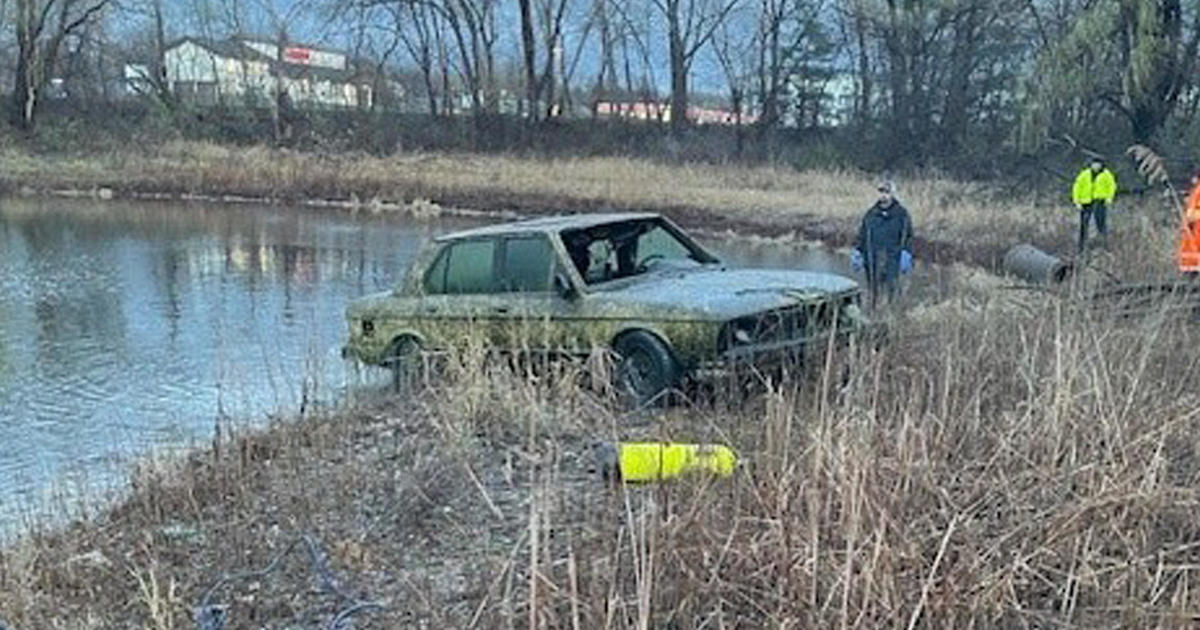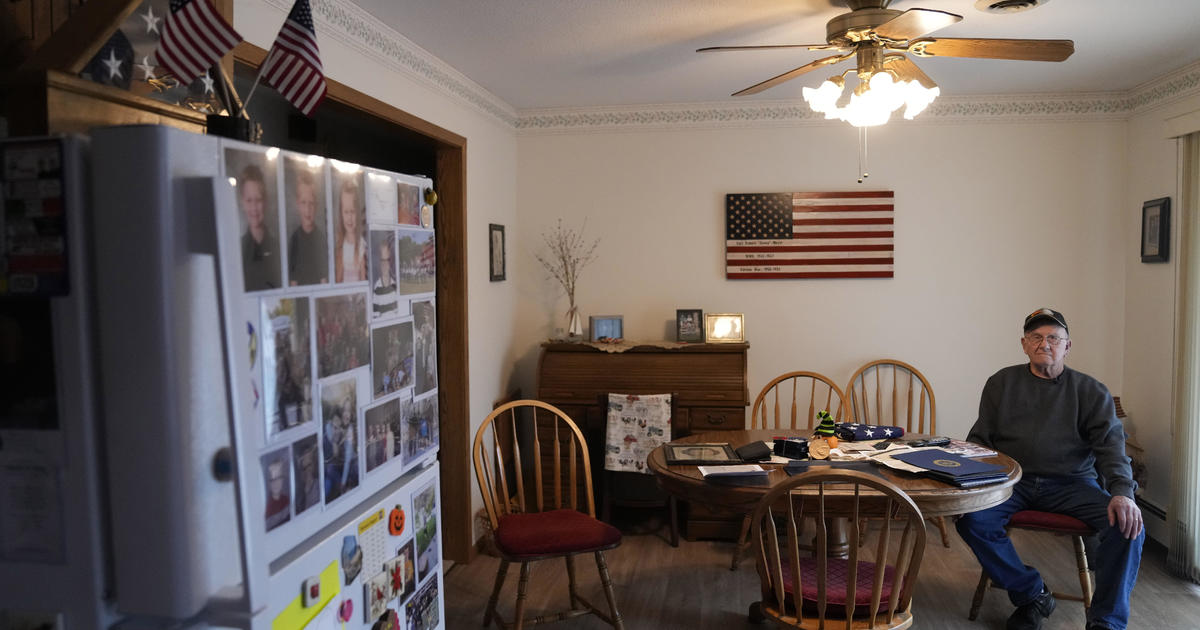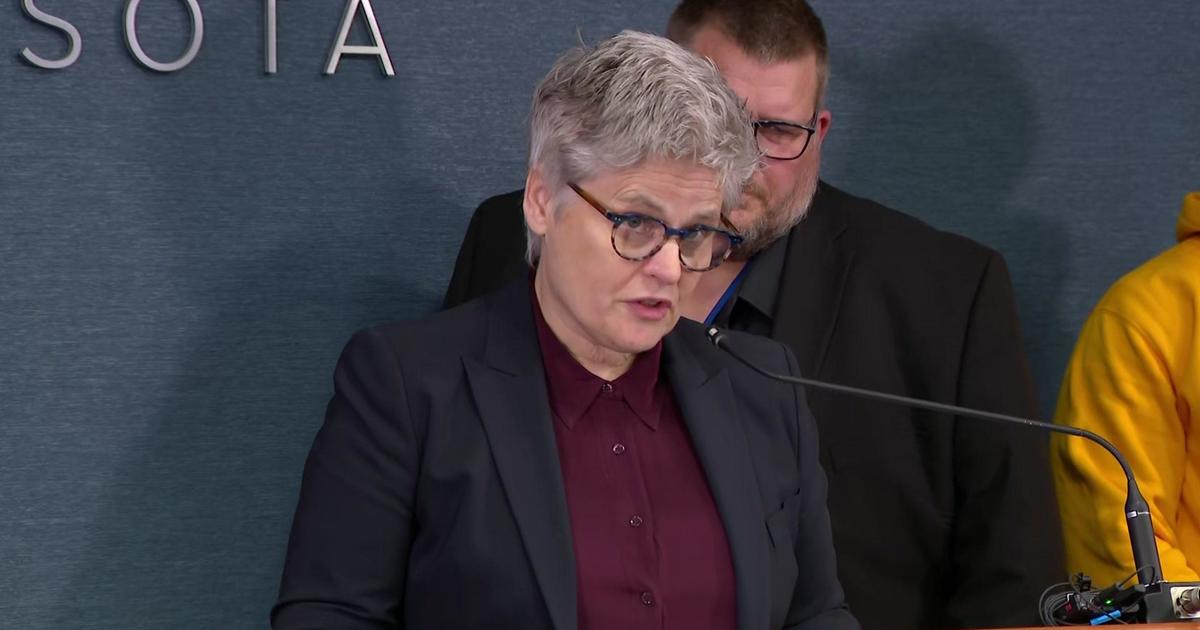Quirk Of Wis. Recall Could Lead To Unusual Outcome
MILWAUKEE (AP) — Wisconsin traditionally elects its governor and lieutenant governor as a pair, but a quirk in next week's recall elections will give voters the chance to elect a Democrat for one office and a Republican for the other — a scenario that could spark a power struggle whenever the top executive leaves the state.
While a bipartisan executive branch is hardly unprecedented considering 18 states elect the offices separately, the unusual arrangement could to lead to some ugly politics in Wisconsin, already considered one of the most polarized states.
The recall efforts against Republican Gov. Scott Walker and Lt. Gov. Rebecca Kleefisch stemmed largely from Walker's successful push to strip most public-sector workers of nearly all their collective bargaining rights, which threw the state into an uproar as tens of thousands of protesters swarmed the Capitol for three weeks of raucous demonstrations.
Walker's Democratic opponent is Milwaukee Mayor Tom Barrett, who lost to Walker in 2010. Kleefisch is opposed by Mahlon Mitchell, president of the statewide firefighters' union. Both Democrats were squarely on the other side of the union issue.
Governors have managed to coexist with lieutenant governors of different parties elsewhere, as is currently the situation in Arkansas, Missouri, Montana, New Hampshire, Rhode Island and Vermont. But some political experts say the arrangement in Wisconsin could be more reminiscent of California in the 1980s, where things got so out of hand that the state Supreme Court was asked to intervene.
"I think it means the governor would never leave the state," said University of Wisconsin-Milwaukee political scientist Mordecai Lee. "Just think of all the legal complications."
In Wisconsin and most other states, the lieutenant governor's position is largely ceremonial. About the only responsibility is to assume the governorship if the incumbent dies, is incapacitated or is impeached. Most state constitutions also put the lieutenant governor in charge if the governor is "absent" from the state, but there's debate about exactly what that means in Wisconsin.
Wisconsin's attorney general's office noted in a 1979 opinion that the state constitution was drawn up in the mid-19th century, a time when a governor who left the state couldn't immediately contact other state officials. The opinion noted that in a modern era of telephones and air travel a governor could perform his duties from out of state.
And in 2012, a governor can be almost anywhere in the world and still reach his staff.
Still, Wisconsin's constitutional language hasn't been challenged in court, meaning a lieutenant governor could declare himself in charge every time the governor crosses the state border. Once in control, the lieutenant governor could sign or veto bills, issue or revoke executive orders, make judicial appointments, call lawmakers into a special session, demand access to confidential governor files or issue pardons. While the governor could undo most of those moves upon returning, a pardon is irreversible, and any secrets learned by the opposition wouldn't be unlearned.
In the 1960s, when the offices were elected separately, Patrick Lucey was a Democratic lieutenant governor to Republican Gov. Warren Knowles. Lucey, who went on to serve as governor, said it worked then, but times were much different.
"Warren and I had known each other for a long time. We got along fine," said Lucey, 94. "But I think it's always made sense that (the governor and lieutenant governor) should be of the same party."
Wisconsin's constitution was amended in 1970 to ensure just that, pairing the governor and his running mate on a joint ballot.
The cautionary tale that most resonates is that of Mike Curb, a conservative Republican elected in 1979 as California's lieutenant governor behind Democratic Gov. Jerry Brown, who was running for president. California's constitution gave the lieutenant governor full gubernatorial powers whenever the governor left the state, and Curb used it.
During one Brown absence he promoted a conservative judge to the appellate court. Brown returned and withdrew the appointment, but when he left again, Curb reappointed the judge. Brown undid it again and also sued to stop Curb. The California Supreme Court issued a split decision, upholding the governor's authority to withdraw the nominations, but also upholding Curb's right to full power when the governor was gone.
Things have since improved in California. Former Republican Gov. Arnold Schwarzenegger faced no such shenanigans from the Democratic lieutenant governor he inherited in 2003 when he replaced the recalled Democratic Gov. Gray Davis.
And, "the governor still has an institutional staff that runs the government" in the governor's absence, noted Rob Stutzman, Schwarzenegger's former spokesman. "So it's actually pretty hard (for the acting governor) to make any meaningful governing decisions."
Of course, a lieutenant governor who's power-hungry still could engage in political hijinks even if she and the governor are members of the same party. That happened in Kentucky in 1978. When Gov. Julian Carroll briefly left the state, Lt. Gov. Thelma Stovall, a fellow Democrat, used her temporary veto authority when the Legislature tried to rescind its earlier ratification of the Equal Rights Amendment. The veto held.
In Missouri, the lieutenant governor can't even try. In 1991 the state Supreme Court ruled that gubernatorial powers "do not devolve to the lieutenant governor ... based upon mere physical absence of the governor from the state."
Peter Kinder, Missouri's Republican lieutenant governor, did make gubernatorial decisions when former Gov. Matt Blunt, a fellow Republican, transferred power to him when Blunt traveled. But current Gov. Jay Nixon, a Democrat, didn't even transfer power to him when Nixon was in Afghanistan visiting troops, Kinder said.
While it's possible for Wisconsin voters to choose a governor and lieutenant governor of separate parties, some political analysts say the odds are slim. It would require voters to either split their ticket — unlikely given the hyper-partisan nature of the recalls — or to vote for one race and skip the other.
J. Gordon Hylton, a professor at Marquette Law School., said even if it happened, there could be public-relations fallout if a lieutenant governor were to assert too much power.
"I think people of both parties would agree that no good could come of that," Hylton said. "But then again, the way Wisconsin politics have become, you never know."
(© Copyright 2012 The Associated Press. All Rights Reserved. This material may not be published, broadcast, rewritten or redistributed.)



